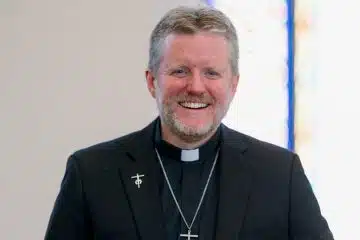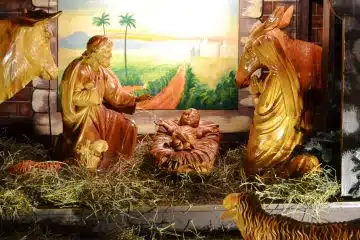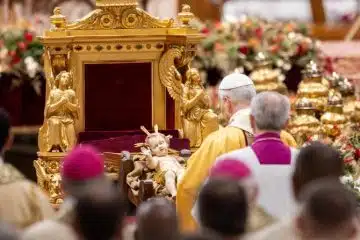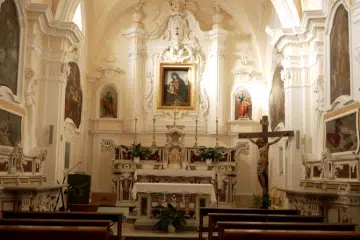Sunday Scripture: Jesus is the source of eternal life
Tuesday, March 24, 2009
By Sister Betty Jane Lillie, S.C.
Fifth Sunday of Lent 35: Jeremiah 31:31-34; Psalm 51:3-4, 12-15; Hebrews 5:7-9; John 12:20-33
Jesus called the hour of His death the hour of His glorification (John 12:23). The kind of death he would die was indicated in Jesus’ own statement that He would be lifted up from the earth and draw all people to himself (John 12:32-33).
What appeared to have happened at Jesus’ death was not the reality of what happened there. We have again a reversal of expectations in the working out of salvation history. In the process of Jesus’ execution He was not the one who was judged, but the world was judged. Jesus was not defeated, but Satan was. People were not repelled, but Jesus drew all people to himself.
Again in this Gospel passage the theme of light and darkness was used. The juxtaposition of Jesus and light identifies Him with the light. The listeners were told to walk with the light while He was still with them. Thus they would become children of light, meaning they would become spiritually enlightened (John 12:36).
The phrase appears also in other places, such as Luke 16:8; Ephesians 5:8; 1 Thessalonians 5:5. The contrast with walking in darkness is interestingly interpreted in the text with not knowing where we are going (John 12:35). We are called out of darkness into this marvelous light. We might want to consciously watch where we are going!
In our second reading from the Letter to the Hebrews we hear that though Jesus was the Son of God, He learned obedience through what He suffered. Having been made perfect, He became the source of eternal salvation for all who obey Him (Hebrews 5:8-9).
A little further on in the text the writer tells us that mature people are those whose faculties have been trained by practice to distinguish good from evil. He calls that the solid food of the teaching of God (Hebrews 5:11-14).
Those are all wonderful images of our incorporation into Christ through the mysteries of His death. As we approach the celebration of the Paschal Mysteries in Holy Week we may want to reflect on the marvelous mercy of God in identifying with us in taking on human nature and thus in drawing us to himself through His life, death and resurrection.
Now, as we look back by a kind of hindsight, we can reflect on our first reading about Jeremiah’s oracle regarding a renewal of the covenant that the Lord had made with His people so long before. That renewal would be interiorized and written on their hearts (Jeremiah 31:33). A little further on in the text we see that it would be an everlasting covenant by which God was said to rejoice in doing good to them with all His heart and soul (Jeremiah 32:40-41).
The Hebrew term for covenant making was to cut a covenant, something like we say to cut a deal. That renewal of the covenant in Israel’s exilic experience would be written in the very depth of their being. They were to be wholly and entirely God’s people.
With the psalmist we can pray, “O Lord, open my lips and my mouth will declare your praise. My tongue will sing aloud your deliverance” (Psalm 51).
Sister Betty Jane Lillie is a member of the faculty at the Athenaeum of Ohio.









